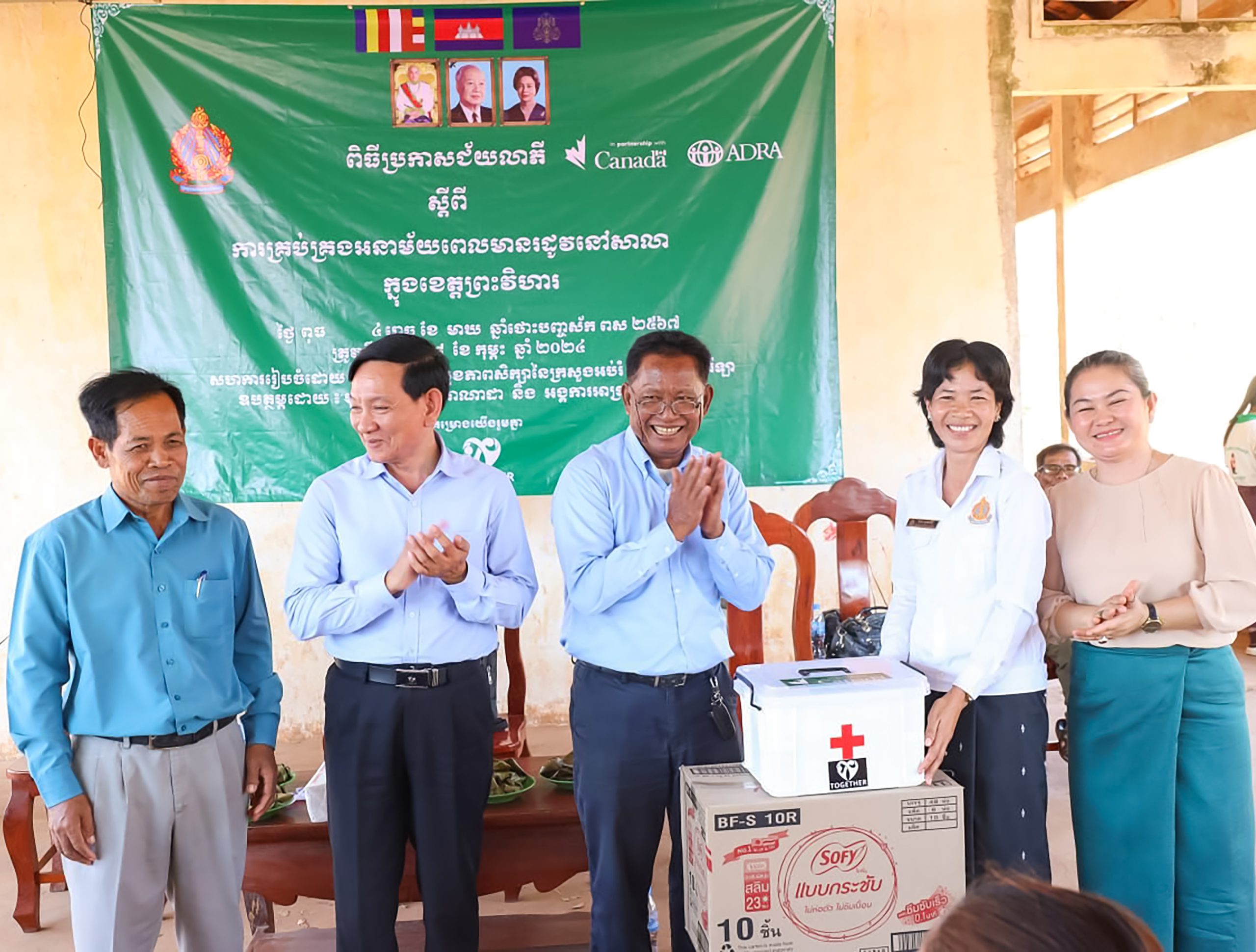
ADRA Cambodia collaborates with School Health Department of Ministry of Education, Youth and Sport (MoEYS), Provincial Education Department, District Education Office and local authorities to recognize and promote “menstrual hygiene management implementation that reached as model school” while raising awareness of health, menstrual hygiene and environment.
On February 27-28 and March 5-6, 2024, PREAH VIHEAR and STUNG TRENG provinces, members of ADRA Cambodia’s TOGETHER project team, collaborated with the School Health Department of MOEYS, the Provincial Education Department, District Education Office, and local authorities to organize recognition and promotion events to 10 middle schools. These schools included five from Sangkumthmey, Padevat, Phnom Chhat, Srayang, and Phnom Penh in Preah Vihear province, and five from Tulmeas Orei, Siem Bok, Pluk, Sesan, and Koh Preah in Stung Treng province, all of which have implemented menstrual hygiene management (MHM) programs and achieved model school standards. A total of 995 participants, including 590 females, took part in these events.
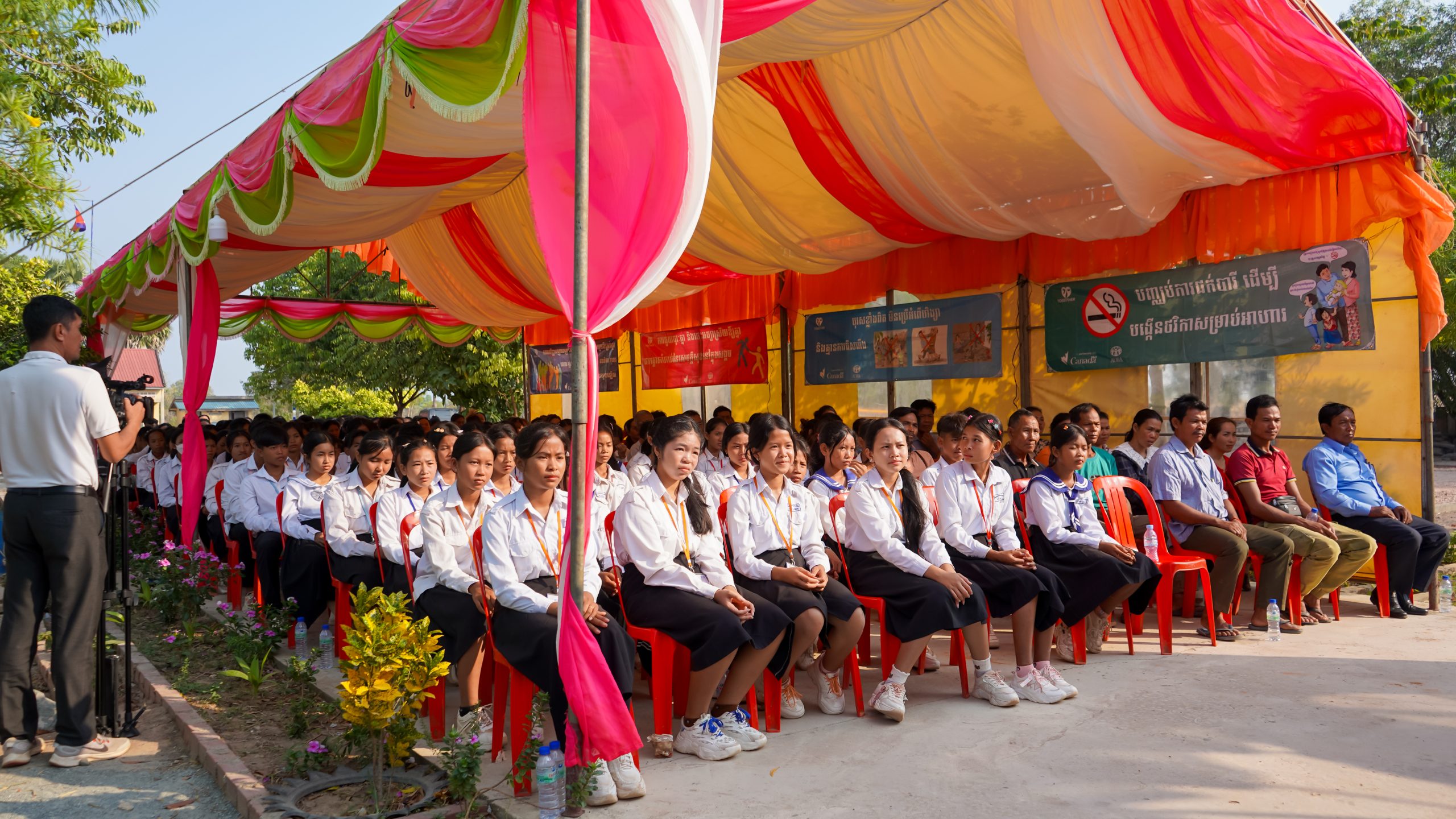
The events were part of the Promote School-based, Girl-centered Inclusive, Safe, Confidential and Environment Sensitive Management of Menstrual Hygiene initiative. This would support adolescent girls for Sexual Reproductive Health and Rights (SRHR) and their ability to participate in daily life during menstruation. The project has worked with MOEYs to develop a policy/criteria for girl-centered, inclusive, safe, confidential and environment sensitive Menstrual Hygiene Management model schools.
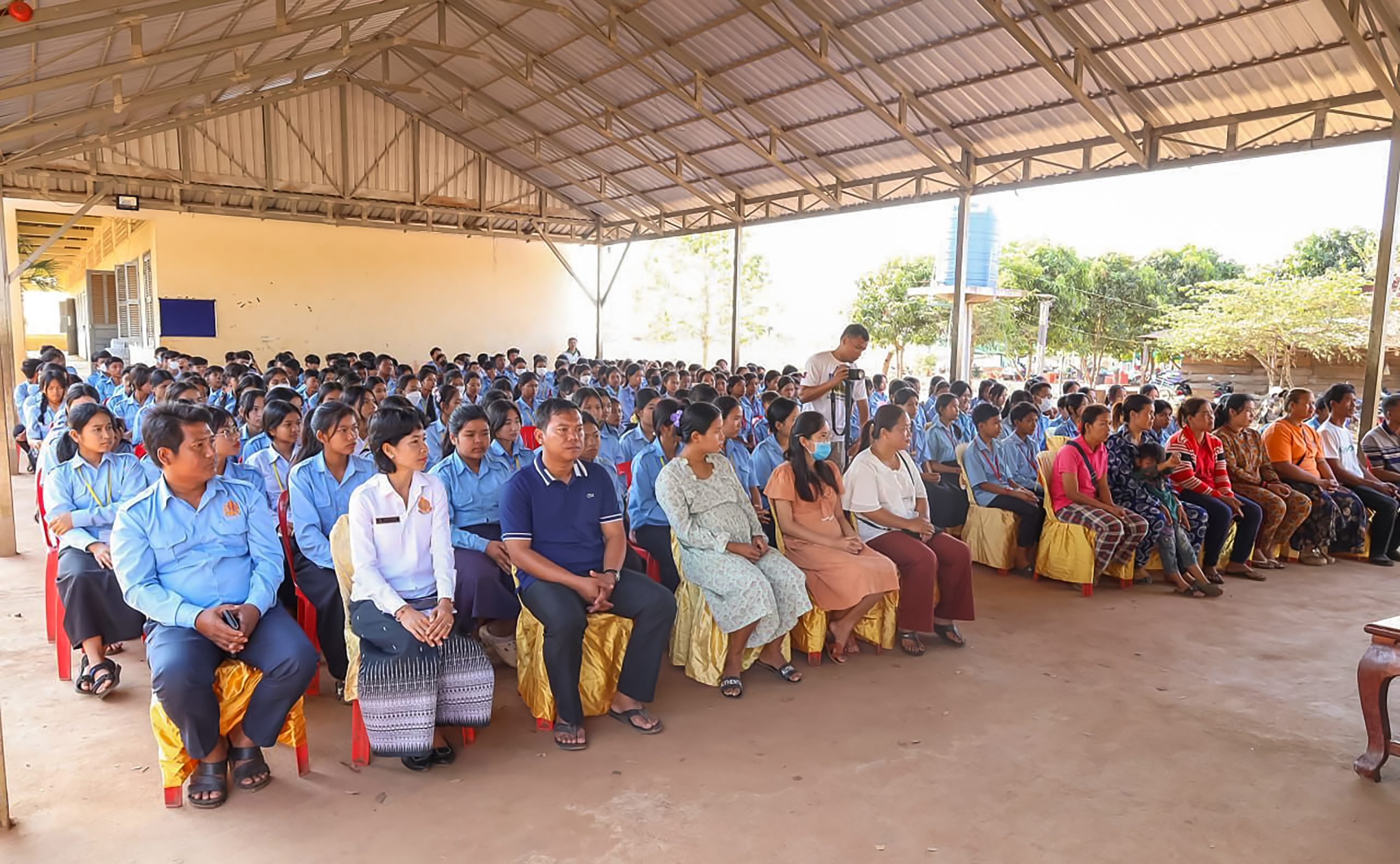
The events also raised awareness of women and girls’ rights by highlighting the work with Program Coordination Committee and school cluster leaders to reinforce the model school’s criteria using Information, Education and Communications materials, monitoring and evaluation according to MOEYs’ guidelines.
In addressing the audience, Roth Rumnea, TOGETHER project manager, highlighted collaborative efforts with government and community partners, including activities within and outside schools such as adolescent girl volleyball, school drama, tablet-based social media promotion, and training sessions for youth club leaders and at-risk youth. Additionally, MHM initiatives were underscored, with 57 middle schools implementing programs, 12 of which have achieved model school status in MHM standards including 2 recognized in mid-2023.

Mr. Heng Sokhom, Deputy Director of the Preah Vihear Provincial Education Department (PED) and Mr. Chan Samphos, Deputy Director of the Stung Treng Provincial Education Department (PED), both emphasized the critical importance of menstrual hygiene management programs. Mr. Sokhom stated, ‘I have been diligently monitoring these initiatives as they are fundamental for the well-being of adolescent girls.’ Similarly, Mr. Samphos echoed this sentiment, saying, ‘I have been closely observing these programs as they play a crucial role in promoting the health of young girls.’ They collectively underscored the notion that good health enables students to attend school, engage in entrepreneurial activities, and contribute to family happiness.
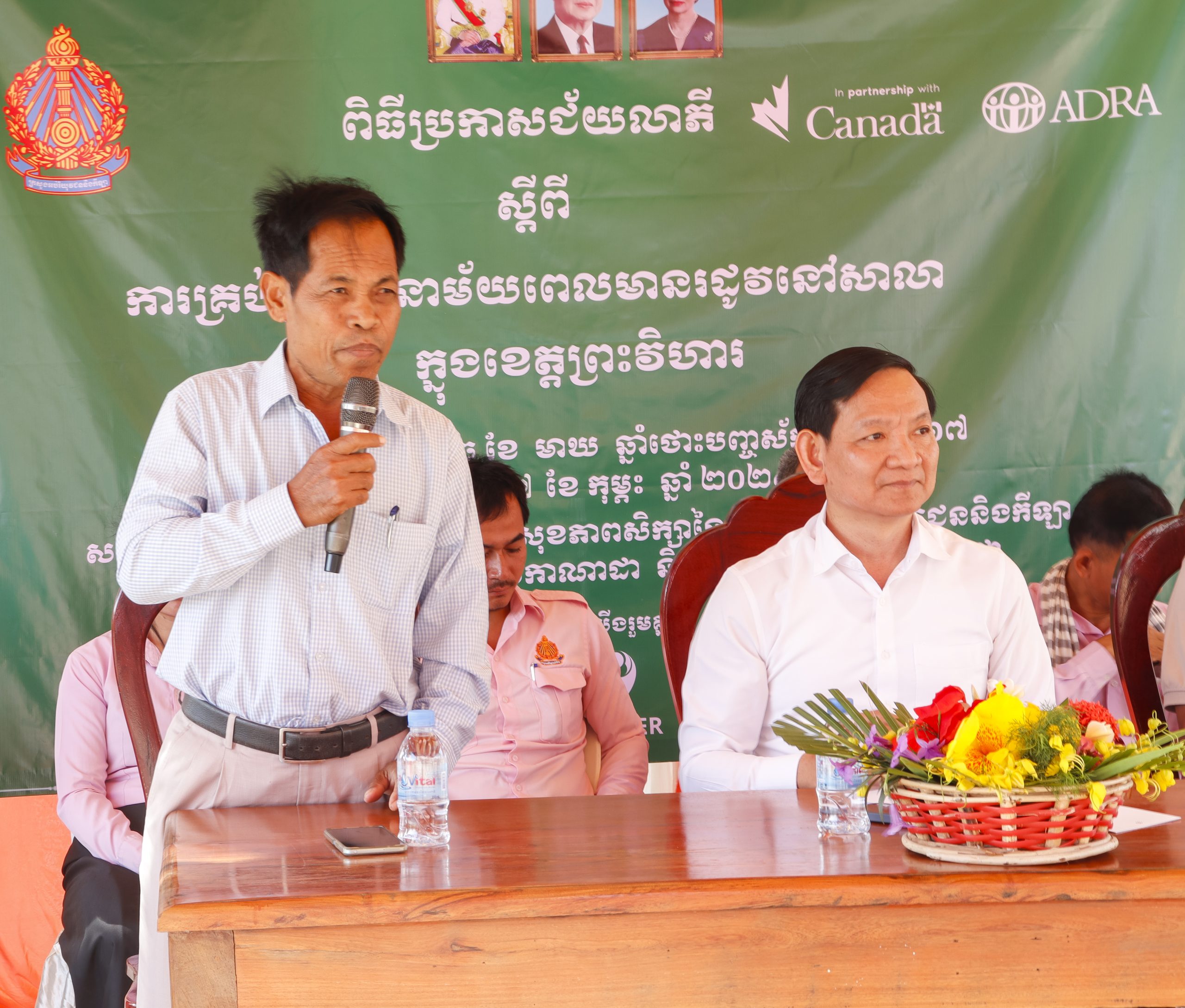
Teacher Ros Dany, Deputy Director of the District Education Office (DED) in Sangkum Thmei district and Chann Sopheak, Deputy Director of the District Education Office (DED) in Sesan district, along with educators responsible for delivering health education in classrooms, expressed gratitude for the recognition bestowed upon their middle schools for achieving MHM model school status. Teacher Dany underscored the pivotal role of parents and students within their communities as stewards of school and environmental well-being. She further articulated aspirations for educators to serve as valuable resources and teachers within their respective communes. Similarly, Mr. Sopheak echoed these sentiments, emphasizing the importance of community involvement in maintaining school and environmental health and expressing hopes for educators to fulfill their roles effectively within their communes.

During the school drama, led by students, a song was performed to depict experiences during the menstrual period. The captivating performance by the adolescent girl group left parents, caregivers, and participants thoroughly engaged and intrigued.

Mrs. Kan Sotheary, Chief Officer of the School Health Department, took the initiative to facilitate a question-and-answer session during the MHM event, addressing adolescent boys, girls, and parents in attendance. The questions posed encompassed crucial topics, including: 1) Definition of menstruation, 2) Identification of puberty signs, 3) Typical duration of a menstrual cycle, 4) Appropriate consultation for abnormal menstruation, and 5) Hygiene practices during menstruation.
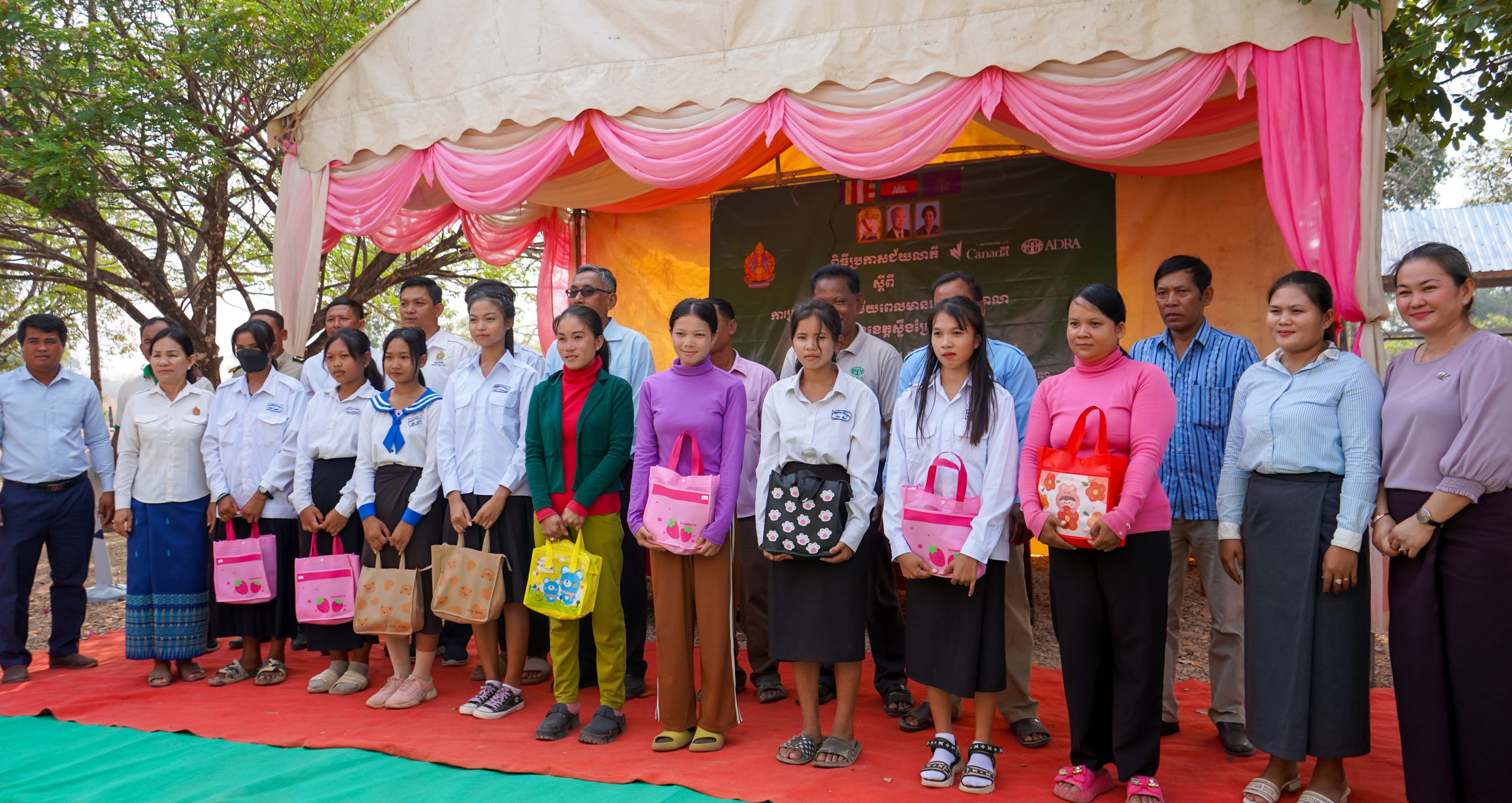
H.E Dr. Yong Kunthearith, Deputy Director of the School Health Department (SHD) at the Ministry of Education, Youth and Sport (MOEYS), expressed delight at returning to remote areas for the MHM recognition and promotion event in Preah Vihear province. He commended the collaboration between ADRA and SHD, PED, DED, and school teachers, highlighting key activities such as adolescent girl volleyball, school drama, social media promotion using tablets, training for youth club leaders and at-risk youth, teacher training for grades 5-9, textbook printing, and organizing events like Parent Appreciation Day, Teacher Day, and MHM implementation. Dr. Kunthearith also emphasized the importance of recognizing and promoting successful schools as model examples of MHM implementation.
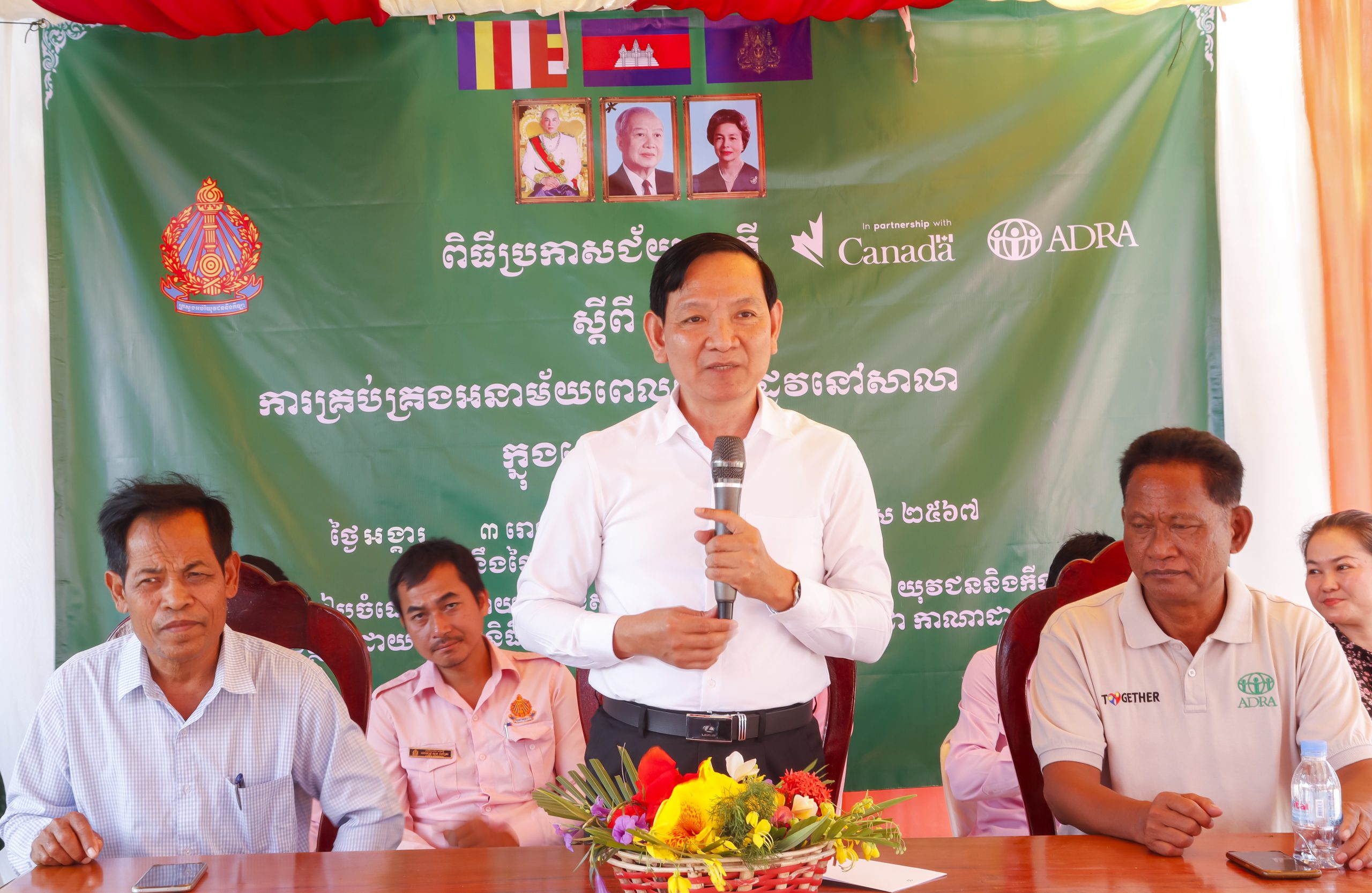
To view the broadcast on the TV channel, kindly click the links provided below:
https://www.facebook.com/infor.pvh/videos/342199868159293
https://www.facebook.com/stungtrengtv/videos/343008934755096
ADRA Cambodia is implementing the “uniting TOwards Gender Equality for enjoyment of women’s and girls’ Total HEalth and Rights” (TOGETHER) project thanks to generous funding from the Government of Canada. Supported by ADRA Canada, SickKids, and Salanga, this gender-transformative 6-year project will ensure that nearly 200,000 girls, women, boys, and men in Cambodia, Kenya, the Philippines, and Uganda are enabled to exercise their health-related human rights.

